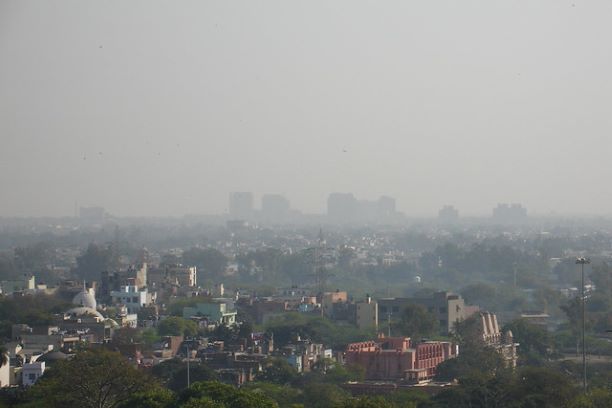

Residents of New Delhi and nearby heavily polluted areas of northern India will now have access to air quality forecasts that provide critical information for reducing their exposure to potentially unhealthy air.
Scientists have developed a new forecasting system that they say can provide residents of Delhi and other heavily polluted areas of northern India critical information for reducing their exposure to potentially unhealthy air. The forecasting system, developed by the US-based National Center for Atmospheric Research (NCAR) in collaboration with the Indian Institute of Tropical Meteorology (IITM) in Pune, Maharashtra provides 72-hour forecasts of fine particulate matter, known as PM2.5.
“By developing this forecasting system, we are working to provide timely and accurate information to the public about forthcoming episodes of poor air quality,” said NCAR’s Rajesh Kumar, the lead scientist on the project. “It’s critical to inform people so they can plan in advance to reduce their exposure to air pollutants that can affect their health.”
Fine particulates are emitted from numerous sources, including agricultural fires, motor vehicles, and smokestacks. On days when atmospheric concentrations of PM2.5 in New Delhi soar to many times the level that is considered unhealthy, prolonged exposure to the toxic haze is equivalent to smoking two packs of cigarettes a day.
The system uses measurements of pollutants, computer modeling, and statistical techniques. It updates the forecast every 24 hours.
A recent study in Lancet found that fine particulates and other pollutants may have caused more than 1 million deaths in India in 2017. It also points out that there is a steady rise in the number of asthma cases among Children and India is just behind China. The technology, which scientists will refine during a two-year research project in India, may eventually be adapted to provide air quality forecasts in other polluted areas in developing countries, as well as in the United States.
“The lessons we are learning in the United States are quite useful in India, and vice-versa,” Kumar said. “This research can lead to accurate forecasting systems in many regions, enabling millions of vulnerable residents to take necessary steps to limit their exposure.”
NCAR scientists are developing a specialized statistical system to combine the observations and WRF-Chem output, further improving the accuracy of PM2.5 predictions and enabling scientists to reliably quantify the uncertainties in the forecast. IITM is also conducting extensive field campaigns and monitoring air quality to better understand processes that influence the formation and movement of particulates in Delhi’s atmosphere. The Ministry of Earth Sciences in India is funding the project.
Sustainability-focused venture builder Sustain Labs Paris (SLP) has collaborated with Posterity Institute and launched ‘SLP…
Japan’s trading giant Sumitomo Corporation has signed an MoU with Malaysian renewable energy conglomerate reNIKOLA…
Renewable energy conglomerate TotalEnergies has signed a Sale and Purchase Agreement (SPA) with HitecVision, a…
Nordic energy company Gasum has inaugurated its newest and largest biogas plant in the Swedish…
The Central Government has approved an additional allocation of 2.8 million tonnes of Food Corporation…
1. The mandate for blending Compressed Biogas (CBG) with natural gas has come into effect…